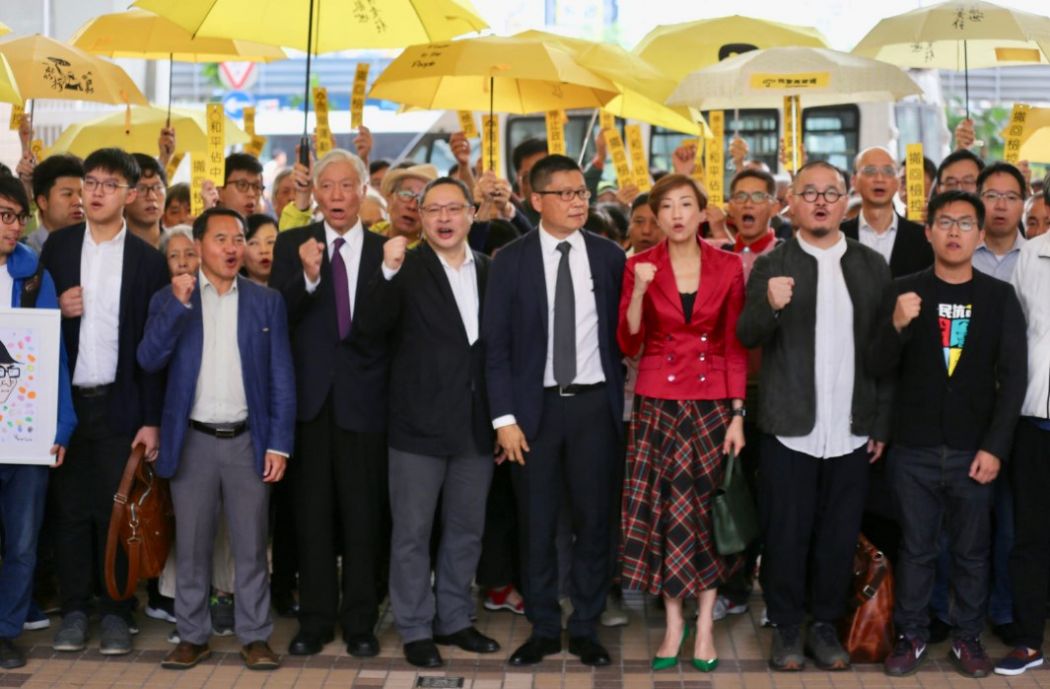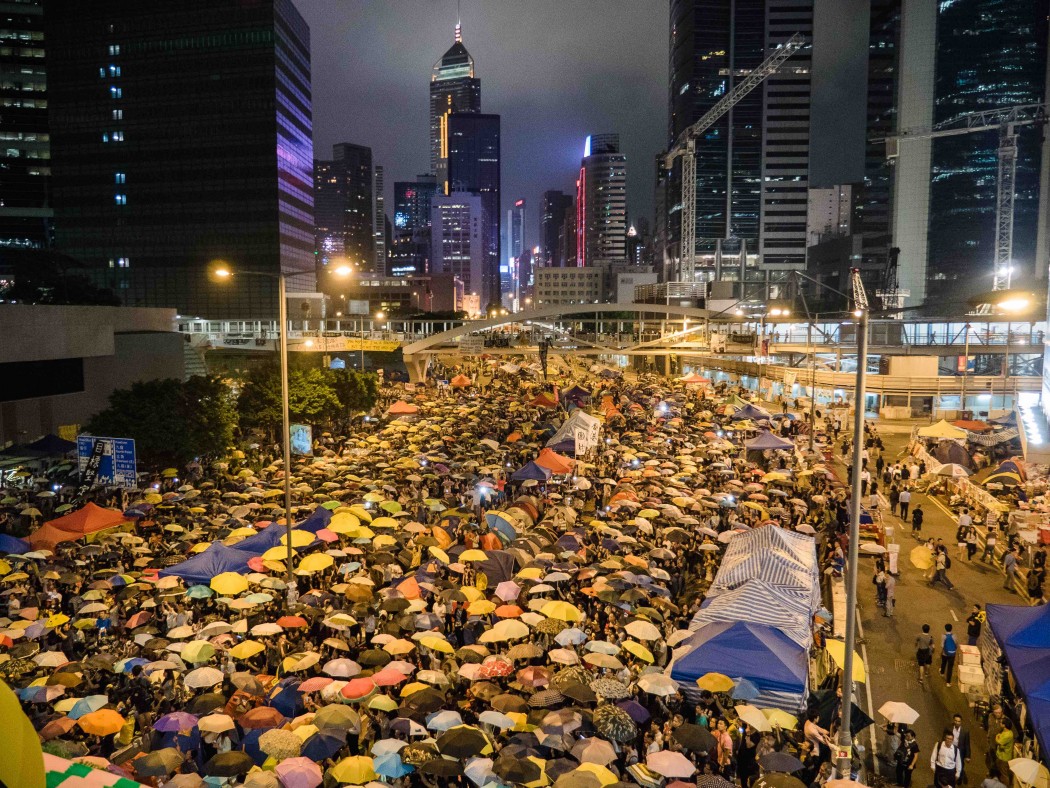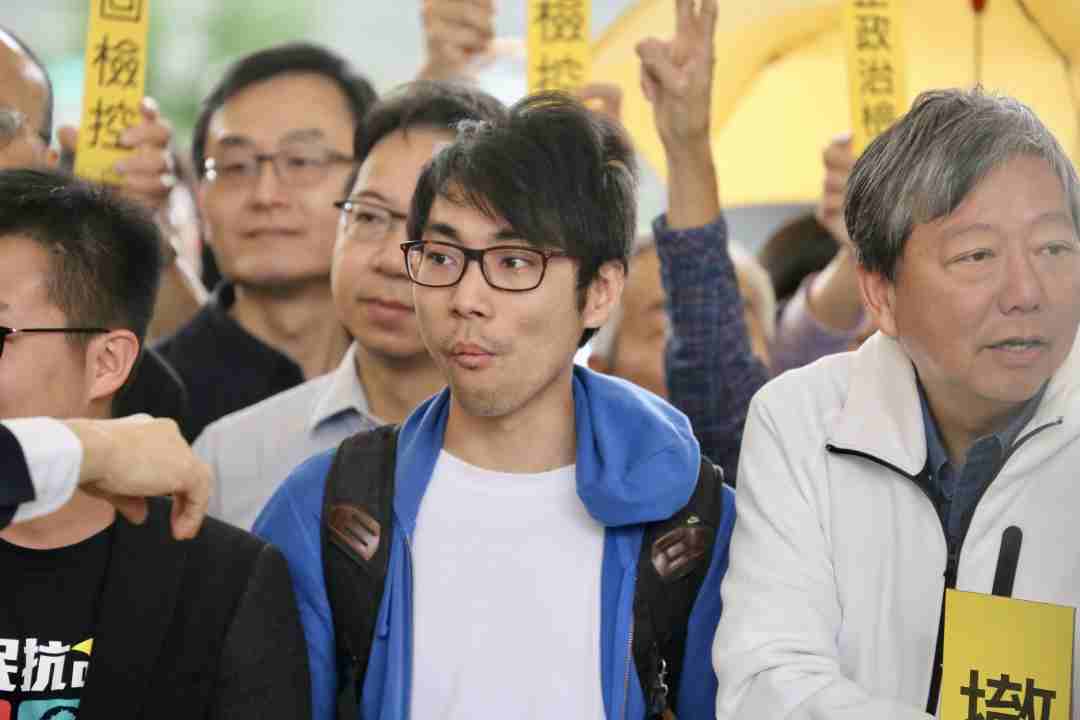The trial of activists involved in the 2014 Umbrella Movement ended on Friday, with the court’s judgment expected to come out April 9 next year.
The 20-day trial came after the biggest pro-democracy protest in Hong Kong history, which saw thousands occupying Admiralty, Mong Kok and Causeway Bay for 79 days.

Nine activists and politicians were charged with varying levels of public nuisance and incitement, which come with a maximum jail sentence of seven years. All have pleaded not guilty.
Sociology professor Chan Kin-man – a member of the trio behind Occupy Central with Love and Peace (OCLP) – said after the trial that he still believed in the ideals of non-violent civil disobedience.
“We are very grateful to the court for giving sufficient time for our lawyers and witnesses to show to the court that it was a spontaneous movement,” Chan said.
“Most people took to the streets because they wanted to protect the fundamental rights of Hong Kong and fight for universal suffrage.”

Another member of the “Occupy trio” Benny Tai urged the public not to lose hope.
During the trial, the prosecution argued that the activists were responsible for causing “unreasonable obstruction” by occupying public roads. They were also guilty of incitement because they had called on the public to join them, prosecutors added.
The nine defendants responded that the occupation was a form of civil disobedience, and in any case, the crowds only joined on their own accord or because of the police’s actions.
Court could not ‘capture truth’
Eason Chung, who was a student leader at the time of the Umbrella Movement, said on Friday that he was more concerned about the people’s verdict on the pro-democracy movement, rather than that of the courts.

“The courts cannot judge us… In your life, if you remember the feeling [of the Umbrella Movement] and do what you can, then you will pronounce this movement not guilty,” Chung said, addressing supporters outside the court building.
He added that the law was incapable of capturing certain truths of the protesters’ experiences.
“Could the trial show your blood, sweat and tears?” he said. “A lot of your experiences – your helplessness, disappointment and persistence – could not be captured in court. [But] that was the truth.”
Chung said that the post-Umbrella Movement political climate should be understood as a “life lesson” that Hong Kongers must personally confront.

“The movement is not about talking, but living… and often the way we live cannot be captured by talk.”
The nine defendants are Benny Tai, Chan Kin-man, Chu Yiu-ming – known together as the “Occupy trio” – as well as Shiu Ka-chun, Lee Wing-tat, Tanya Chan, Raphael Wong, Tommy Cheung and Chung Yiu-wa.
